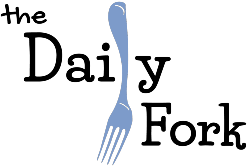What’s Intermittent Fasting?
Intermittent fasting is a type of diet that requires you to restrict your calorie intake by points and eat regularly the rest of the time. Studies have shown that intermittent fasting can assist in weight loss, and work as a long-term diet.
A good diet can change your eating habits completely, as well as your mindset. However, choosing the wrong method will often leave you hungry, and potentially eating more.
“16:8” is one of the most popular methods around, and very easy for beginners. Followers of this method fast for 16 hours a day and eat for 8 hours, anything meal or snack that will fit within this time window.

“5:2” is also common, and another intermittent option for those who are new to intermittent fasting. In this diet, you can eat regularly for 5 days a week, and restrict calories for the other two. On fasting days, women eat 250 calories, and men are allowed 300.
“Eat Stop Eat” is harder to adapt to, but a fantastic system for some. With “Eat Stop Eat”, a full fast is undertaken for 24 hours, once or twice a week.
During this period, you can only drink calorie-free beverages. No solid food is allowed. This can be tough when starting out, as the body needs time to adapt.
Finding the right intermittent fast can be trial and error. These are only a few examples of schedules people use. What’s most important is listening and responding to your body.
Should I intermittent fast every day?
Yes, you can intermittent fast every day, but it depends on which plan you are following!
For some, intermittent fasting involves fasting for several hours of the day. For others, an intermittent fast encourages days of eating regularly and days of restricting calorie intake.
If you intend to intermittent fast every day, it’s important to follow a plan with set hours. The “16:8” diet is a very popular method that involves daily fasting. With this diet, a person fasts for 16 hours and eats for 8.
Many choose to fast in the morning. For example, they’ll finish dinner by 8, and then not eat until noon the next day. Of course, if you prefer a large breakfast, some choose to fast from the mid-afternoon and resume eating the next morning.
A simpler, and easier, version of this diet is “12:12”. On this plan, food is only restricted for 12 hours a day, much of which is spent asleep. Some find this a useful way to change their mindset around food and slowly transition to 16:8.
A more extreme version of intermittent fasting is alternate-day fasting.
On fasting days, a person will either restrict themselves to small meals or avoid meals altogether. Beginners often find this very difficult, and it isn’t recommended for people with certain health conditions.
Intermittent fasting is possible every day, but it involves having set hours when you can eat, alongside controlled hours when you can’t.
Can I drink during intermittent fasting?
Yes, and drinking is an important part of intermittent fasting. During fasting periods, it’s necessary to maintain a healthy level of fluid intake. This can help curb feelings of hunger, but it’s also vitally important to keep the body hydrated.

There are several methods for intermittent fasting, but they all allow for water consumption. During fasting periods, it’s permitted to drink water, coffee without milk, and other calorie-free beverages.
However, it’s important to avoid calorie-rich drinks. When not in a fasting period, calories from drinks do count towards the overall calorie count.
With a method such as the 5:2 diet, there are no days in which you’re restricted from eating entirely. On two days of the week, a follower will eat a significantly smaller amount of calories. They’re still allowed to drink and should continue to hydrate regularly.
A method such as the 16:8 diet does involve not eating for several hours. During these hours without food, water consumption is allowed, and necessary.
Alongside drinking, there are also several periods of intermittent fasting where you can eat whatever you like. On these days, the calorie intake is much less closely monitored.
While you can eat what you want, it’s important to eat healthily. A method such as the Warrior Diet allows a 4-hour window to eat a large meal. But you still can’t get calories any way you choose. The Warrior Diet has a strict meal selection.
How long does it take for intermittent fasting to work?
While intermittent fasting has had proven results, it may take up to 10 weeks before you start to see any real change. Weight loss won’t happen overnight with intermittent fasting, but will instead be a gradual process.
This is a better way of sustaining long-term weight loss, compared to a sudden drop in pounds. A change in attitude towards eating is more helpful in the long run than an extreme cut in calories.
Many factors contribute to how quickly intermittent fasting works, and some of them are out of our control. The way your body metabolizes food is one of the immediate reasons it might take a while to see results. The effects of healthy eating can still be felt, even if they aren’t outwardly obvious.
Other factors, such as the diet you follow and the times you eat, also play a role. Studies have shown that eating earlier is better for weight loss, rather than skipping breakfast.
Some may start with an extreme form of intermittent fasting, and find it doesn’t work because they can’t stick to it. Test out all the different methods, and see which is best for you!
Intermittent fasting works because, in the long period between meals, your body has to switch from burning calories to burning fat. This is what leads to weight loss. However, you have to be careful.
Too long without food and the body resorts to starvation mode. At this point, it begins storing more fat, to prepare for a long time without calories.
Enjoyed this article? Check out our large variety at http://www.dailyfork.com.
